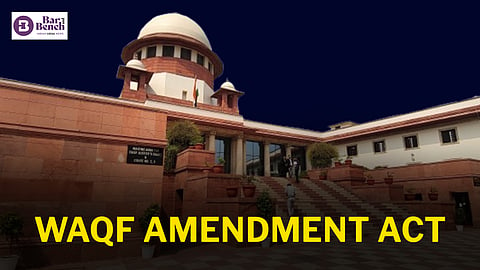
- Latest Legal News
- News
- Dealstreet
- Viewpoint
- Columns
- Interviews
- Law School
- Legal Jobs
- हिंदी
- ಕನ್ನಡ

The Supreme Court's interim order in the Waqf Amendment Act case offers a window into one of the more perplexing questions of contemporary constitutional law: when, if at all, may the state inquire into the authenticity of an individual's religious practice?